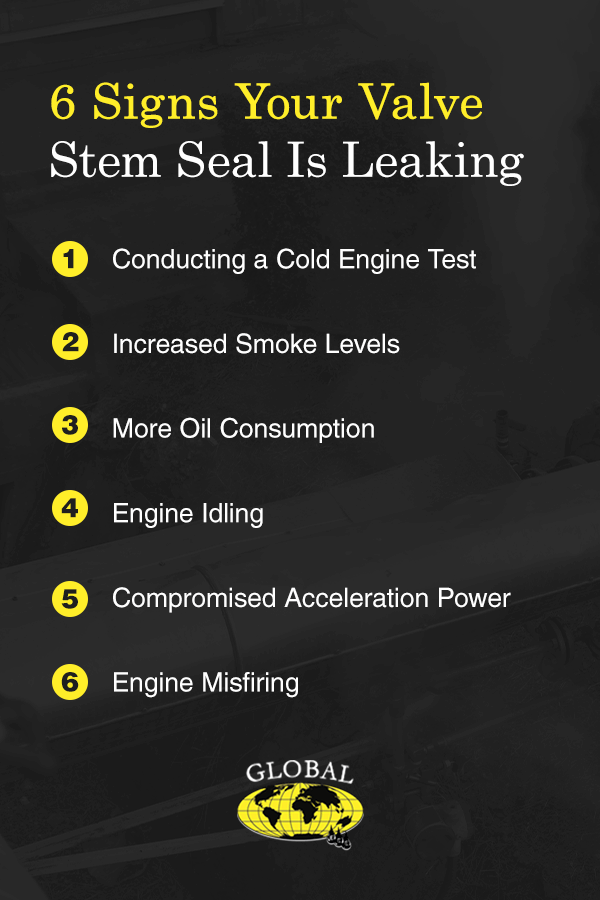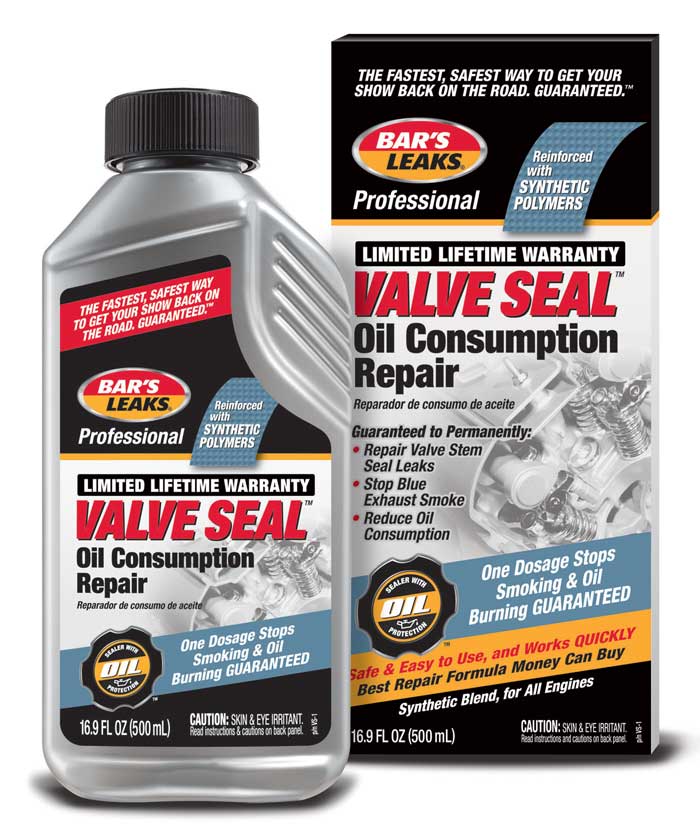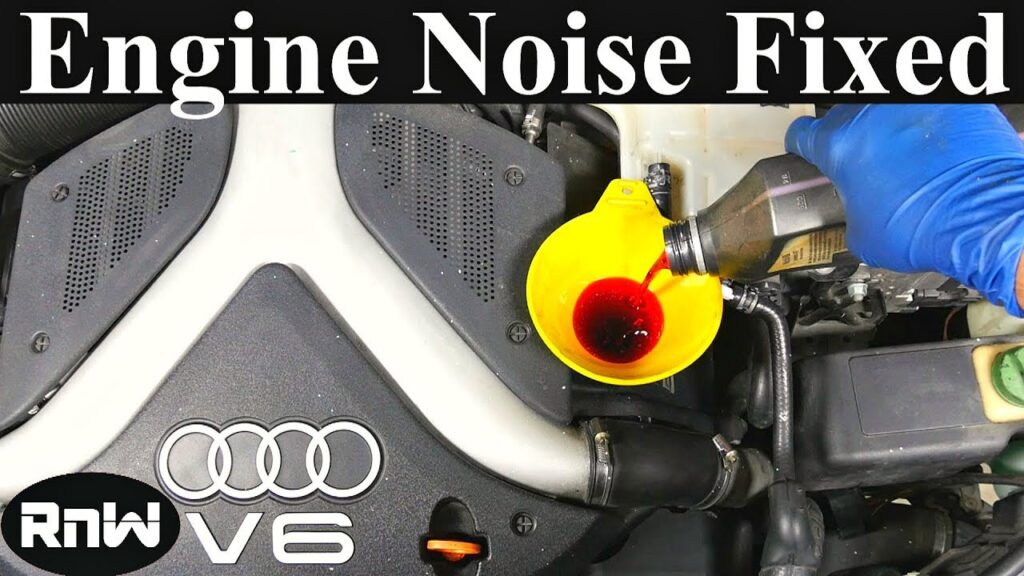Lucas Oil Stop Leak is the best oil additive for older engines with valve guide seals leaking. It reduces leaks and improves engine performance.
Older engines often suffer from valve guide seals leaking, leading to oil consumption and reduced performance. Lucas Oil Stop Leak is a popular solution for this issue. This additive conditions the seals, making them more pliable and effective at stopping leaks.
It also helps to rejuvenate worn engine components, enhancing overall performance. By choosing this product, you can extend the life of your engine and minimize oil loss. Regular use of Lucas Oil Stop Leak can help maintain engine health, ensuring smoother operation and better fuel efficiency. This makes it a cost-effective and practical choice for older vehicles.
Introduction To Oil Additives
Oil additives improve engine performance and protect its parts. They are especially helpful for older engines. Older engines may have valve guide seals leaking. Using the right oil additive can solve this problem. Let’s learn more about oil additives and their benefits.
Key Functions Of Oil Additives
- Reduce Friction: Oil additives reduce friction between engine parts. This helps the engine run smoothly.
- Prevent Wear: They create a protective layer on engine parts. This prevents wear and tear.
- Clean the Engine: Additives clean sludge and deposits from the engine.
- Seal Leaks: Special additives can seal minor leaks in the engine.
Importance For Older Engines
Older engines need more care. They have worn-out parts and may leak oil. Using oil additives can help solve these issues.
Preserve Engine Life: Additives reduce friction and wear. This helps extend the engine’s life.
Improve Performance: Clean engines perform better. Additives remove sludge and deposits, improving performance.
Seal Leaks: Some additives can seal small leaks in valve guide seals. This is crucial for older engines.

Credit: www.globaleee.com
The Aging Engine Challenge
As engines age, they face numerous challenges. Valve guide seals often start to leak. These leaks can lead to various issues. This is where oil additives come in handy. They can help maintain the performance of an older engine.
Common Issues In Older Engines
Older engines usually face several problems. These problems can include:
- Valve guide seals leaking
- Decreased fuel efficiency
- Increased oil consumption
- Loss of power
- Excessive smoke from the exhaust
These issues can reduce the lifespan of your engine. It is essential to address them promptly.
How Additives Can Help
Oil additives can significantly improve engine performance. They can solve many problems older engines face. Here are some benefits of using oil additives:
- Seal conditioners: These additives rejuvenate old seals. They help stop leaks.
- Detergents and dispersants: These keep the engine clean. They prevent sludge buildup.
- Viscosity modifiers: These additives maintain oil thickness. They ensure proper lubrication.
- Anti-wear agents: These reduce friction. They protect engine parts from wear and tear.
Using the right oil additive can make a big difference. It can help your engine run smoothly. Always choose a quality product for the best results.
Here’s a quick comparison of popular oil additives:
| Product | Seal Conditioning | Detergents | Viscosity Modifiers | Anti-Wear Agents |
|---|---|---|---|---|
| Brand A | Excellent | Good | Excellent | Good |
| Brand B | Good | Excellent | Good | Excellent |
| Brand C | Fair | Good | Excellent | Good |
Choose the best oil additive for your aging engine. Addressing leaks and other issues early can save you time and money.
Types Of Oil Additives
Choosing the best oil additive for an older engine with valve guide seals leaking can be challenging. Oil additives are essential to improve engine performance and longevity. They come in various types, each serving a specific purpose. Below are the main types of oil additives you should consider.
Viscosity Index Improvers
Viscosity Index Improvers (VIIs) help maintain the oil’s thickness. They ensure the oil flows well in both hot and cold conditions. This is crucial for older engines. It helps to reduce wear and tear.
VIIs are polymers that expand at higher temperatures. This thickens the oil, providing better lubrication. During cold starts, the oil remains thin, ensuring it reaches all parts quickly.
Detergents And Dispersants
Detergents and dispersants keep your engine clean. They remove sludge and deposits. This is vital for older engines with leaking valve guide seals.
- Detergents: These additives neutralize acids and prevent rust.
- Dispersants: They suspend contaminants in the oil. This prevents them from forming sludge.
Using these additives can improve engine efficiency. It can also extend the engine’s life.
Anti-wear Agents
Anti-wear agents protect engine parts from friction. They form a protective layer on metal surfaces. This reduces wear and tear, especially in older engines.
Common anti-wear agents include zinc dialkyldithiophosphate (ZDDP). It is effective in high-stress conditions. Adding these agents can help reduce valve guide seal leaks.
Seal Conditioners
Seal conditioners rejuvenate old, hardened seals. They make the seals swell slightly. This helps to stop leaks.
These additives are crucial for engines with leaking valve guide seals. They can restore flexibility to the seals. This reduces oil leakage and improves performance.
Many oil additives combine different types to provide comprehensive protection. Choosing the right additive can significantly benefit older engines. It can reduce leaks and extend engine life.
Seal Conditioners Explained
Older engines often face issues like valve guide seals leaking. A practical solution is using seal conditioners. These additives can rejuvenate seals, reducing leaks and improving performance.
Functionality Of Seal Conditioners
Seal conditioners work by softening and expanding the seals. This helps them regain their original shape and flexibility. By doing so, they create a better seal, reducing oil leaks significantly.
They contain chemicals that penetrate the rubber seals. This process revitalizes the seals, making them pliable again. Older seals often become brittle, causing leaks. Seal conditioners counteract this brittleness effectively.
Benefits For Older Engines
Using seal conditioners in older engines offers several benefits:
- Reduced Oil Leaks: The primary benefit is the reduction of oil leaks. This helps in maintaining proper oil levels.
- Improved Engine Performance: With fewer leaks, engines run smoother. This results in better overall performance.
- Extended Engine Life: Properly maintained seals can extend the life of an older engine.
Seal conditioners are an affordable way to address valve guide seal leaks. They save you from costly repairs or replacements. For older engines, this can be a game-changer.
Top Contenders For Best Oil Additive
Older engines with valve guide seals leaking need special care. The right oil additive can reduce leaks and improve performance. Here, we explore the top contenders for the best oil additive. These products can help maintain your engine’s health and longevity.
Popular Brands And Formulas
- Lucas Oil Stop Leak: Known for its thick formula, this product reduces leaks and improves oil pressure.
- Liqui Moly Motor Oil Saver: This additive rejuvenates rubber seals and reduces oil consumption.
- Bar’s Leaks Engine Repair: A versatile solution that addresses multiple engine issues including leaks.
- STP High Mileage Oil Treatment: Designed for high-mileage engines, it offers robust leak protection.
- BlueDevil Oil Stop Leak: Known for sealing leaks permanently without causing damage.
What Makes Them Stand Out
Lucas Oil Stop Leak stands out for its thick formula. It effectively stops leaks and boosts oil pressure. Many users trust its consistent performance.
Liqui Moly Motor Oil Saver excels in rejuvenating old rubber seals. It also reduces oil consumption. This makes it a favorite for older engines.
Bar’s Leaks Engine Repair offers a versatile solution. It tackles multiple engine issues, including leaks. This makes it a reliable choice for comprehensive engine care.
STP High Mileage Oil Treatment targets high-mileage engines. It provides robust leak protection. Its specialized formula makes it ideal for older engines.
BlueDevil Oil Stop Leak is known for sealing leaks permanently. It does this without causing any damage. This makes it a highly trusted option.
Criteria For Selecting Oil Additives
Choosing the right oil additive for an older engine with valve guide seals leaking is crucial. The right additive can prolong engine life and improve performance. Here are the essential criteria for selecting oil additives to address valve guide seals leaking in older engines.
Compatibility With Engine Type
The oil additive must be compatible with the engine type. Different engines require different formulations. Ensure the additive suits your engine’s specific needs. Check the product label for compatibility details. Older engines have unique requirements compared to newer models. Choose an additive designed for high-mileage engines.
Considerations For High Mileage
Older engines often have high mileage. This means more wear and tear on engine components. Look for additives that specifically address high-mileage engines. These additives contain special conditioners. They help rejuvenate and protect worn seals. This can reduce oil leaks and improve engine performance.
Here are some key features to consider:
- Seal conditioners to rejuvenate worn seals
- Anti-wear agents to protect engine components
- Detergents to clean and prevent sludge build-up
- Viscosity modifiers to ensure optimal oil flow
Choosing the right additive can make a significant difference. It can enhance engine longevity and reduce leaks. Always read the product details carefully. Select an additive that meets your engine’s specific needs.
User Experiences And Testimonials
When an older engine starts leaking oil from valve guide seals, finding the right oil additive can be a game-changer. Many users have shared their experiences with various products. These testimonials offer valuable insights for those facing similar issues. Below, we explore some real-life stories from older engine owners.
Success Stories From Older Engine Owners
Many users have reported positive results after using oil additives designed for older engines. Here are a few success stories:
- John from Texas: John used a high-mileage oil additive in his 1998 Toyota Camry. He noticed a significant reduction in oil leaks within two weeks.
- Susan from California: Susan added a seal conditioner to her 2002 Honda Accord. The engine ran smoother, and the leaks almost stopped.
- Mike from New York: Mike’s 1995 Ford Mustang had severe leaks. After using a synthetic oil additive, the leaks reduced by 70%.
Cautionary Tales And Precautions
Not all experiences have been positive. Some users faced issues due to improper usage. Here are some cautionary tales:
- Emma from Florida: Emma added too much oil additive to her 2001 Chevy Tahoe. This led to increased engine noise and reduced performance.
- Robert from Ohio: Robert used a generic additive in his 1997 Nissan Maxima. The leaks worsened, and he had to replace the valve seals.
- Linda from Nevada: Linda’s 2000 Jeep Cherokee didn’t respond well to a thickening oil additive. The engine struggled to start in cold weather.
To avoid these issues, follow these precautions:
- Read the product instructions carefully.
- Use the recommended dosage.
- Choose an additive compatible with your engine type.
These user experiences can guide you in selecting the best oil additive for an older engine with valve guide seals leaking.
Application Tips For Maximum Benefit
Using oil additives can greatly benefit older engines with valve guide seals leaking. Applying these additives correctly ensures you get the maximum benefit. Below are tips to help you apply oil additives effectively.
Best Practices For Adding To Your Engine
- Read the instructions on the oil additive bottle first.
- Warm up your engine before adding the oil additive.
- Turn off the engine and let it cool slightly.
- Open the oil cap and pour the additive slowly.
- Check oil levels to ensure they are within safe limits.
- Run the engine for a few minutes to mix the additive well.
Frequency And Dosage Recommendations
| Engine Condition | Frequency | Dosage |
|---|---|---|
| Mild leaking | Every oil change | 1 bottle |
| Moderate leaking | Every 3,000 miles | 1.5 bottles |
| Severe leaking | Every 2,000 miles | 2 bottles |
For the best results, follow these frequency and dosage recommendations. This helps your engine run smoothly and reduces leaks.
Conclusion: Revitalizing Your Older Engine
Revitalizing an older engine with valve guide seals leaking can be a game-changer. Using the right oil additive extends the life of your engine. It also improves overall performance. This section explores the long-term advantages and final thoughts on selecting the best oil additive.
Long-term Advantages Of Regular Use
Regular use of high-quality oil additives offers many benefits. These benefits go beyond just fixing leaks. They provide ongoing support to your engine.
- Enhanced Engine Performance: Oil additives improve lubrication. This reduces friction and wear.
- Prolonged Engine Life: Consistent use keeps engine parts in better condition. This extends engine life.
- Reduced Oil Consumption: Effective oil additives minimize leaks. This reduces the need for frequent oil top-ups.
- Improved Fuel Efficiency: A well-lubricated engine runs more efficiently. This can save on fuel costs.
Final Thoughts On Oil Additive Selection
Selecting the right oil additive can seem overwhelming. Focus on key factors to make an informed choice.
- Compatibility: Ensure the additive is compatible with your engine type.
- Reputation: Choose products with good reviews and proven results.
- Ingredients: Look for additives with high-quality ingredients. Avoid those with harmful chemicals.
Consider these points for a smart decision. Your engine will thank you with better performance and longevity.

Credit: www.amazon.com

Credit: www.techshopmag.com
Frequently Asked Questions
What Is An Oil Additive For Older Engines?
An oil additive enhances engine oil performance. It helps older engines by reducing wear, improving lubrication, and sealing leaks.
How Do Oil Additives Help Valve Guide Seals?
Oil additives rejuvenate valve guide seals. They soften and swell the seals, reducing oil leaks and improving engine performance.
Can Oil Additives Fix Leaking Valve Guide Seals?
Oil additives can reduce leaks from valve guide seals. They condition the seals, making them more effective and prolonging their lifespan.
Are Oil Additives Safe For Older Engines?
Yes, oil additives are safe for older engines. They improve lubrication, reduce friction, and protect engine components from wear.
Conclusion
Choosing the best oil additive for older engines with leaking valve guide seals is crucial. It helps maintain engine performance and longevity. Ensure you pick a high-quality product that addresses your specific needs. Regular maintenance, combined with the right oil additive, can extend your engine’s life and efficiency.

